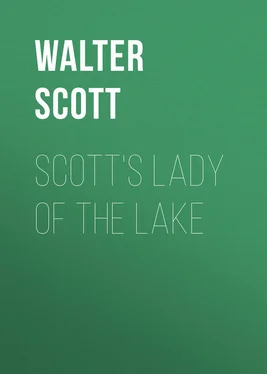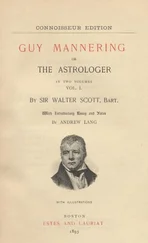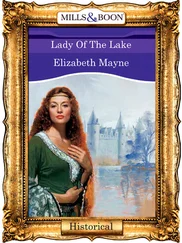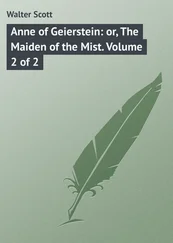Walter Scott - Scott's Lady of the Lake
Здесь есть возможность читать онлайн «Walter Scott - Scott's Lady of the Lake» — ознакомительный отрывок электронной книги совершенно бесплатно, а после прочтения отрывка купить полную версию. В некоторых случаях можно слушать аудио, скачать через торрент в формате fb2 и присутствует краткое содержание. Издательство: Иностранный паблик, Жанр: foreign_prose, на английском языке. Описание произведения, (предисловие) а так же отзывы посетителей доступны на портале библиотеки ЛибКат.
- Название:Scott's Lady of the Lake
- Автор:
- Издательство:Иностранный паблик
- Жанр:
- Год:неизвестен
- ISBN:нет данных
- Рейтинг книги:4 / 5. Голосов: 1
-
Избранное:Добавить в избранное
- Отзывы:
-
Ваша оценка:
- 80
- 1
- 2
- 3
- 4
- 5
Scott's Lady of the Lake: краткое содержание, описание и аннотация
Предлагаем к чтению аннотацию, описание, краткое содержание или предисловие (зависит от того, что написал сам автор книги «Scott's Lady of the Lake»). Если вы не нашли необходимую информацию о книге — напишите в комментариях, мы постараемся отыскать её.
Scott's Lady of the Lake — читать онлайн ознакомительный отрывок
Ниже представлен текст книги, разбитый по страницам. Система сохранения места последней прочитанной страницы, позволяет с удобством читать онлайн бесплатно книгу «Scott's Lady of the Lake», без необходимости каждый раз заново искать на чём Вы остановились. Поставьте закладку, и сможете в любой момент перейти на страницу, на которой закончили чтение.
Интервал:
Закладка:
Onward, amid the copse ’gan peep
A narrow inlet, still and deep,
Affording scarce such breadth of brim
As served the wild duck’s brood to swim.
Lost for a space, through thickets veering,
But broader when again appearing,
Tall rocks and tufted knolls their face
Could on the dark-blue mirror trace;
And farther as the Hunter stray’d,
Still broader sweep its channel made.
The shaggy mounds no longer stood,
Emerging from the tangled wood,
But, wave-encircled, seem’d to float,
Like castle girdled with its moat;
Yet broader floods extending still
Divide them from their parent hill,
Till each, retiring, claims to be
An islet in an inland sea.
And now, to issue from the glen,
No pathway meets the wanderer’s ken,
Unless he climb, with footing nice, 38 38 Careful.
A far projecting precipice.
The broom’s 39 39 A bushy shrub common in western Europe.
tough roots his ladder made,
The hazel saplings lent their aid;
And thus an airy point he won,
Where, gleaming with the setting sun,
One burnish’d sheet of living gold,
Loch Katrine lay beneath him roll’d,
In all her length far winding lay,
With promontory, creek, and bay,
And islands that, empurpled bright, 40 40 Used adverbially.
Floated amid the livelier light,
And mountains, that like giants stand,
To sentinel enchanted land.
High on the south, huge Benvenue
Down on the lake in masses threw
Crags, knolls, and mounds, confusedly hurl’d,
The fragments of an earlier world;
A wildering forest feather’d o’er
His ruin’d sides and summit hoar,
While on the north, through middle air,
Ben-an 41 41 “Little Mountain,” east of Loch Katrine.
heaved high his forehead bare.
From the steep promontory gazed
The stranger, raptured and amazed,
And, “What a scene were here,” he cried,
“For princely pomp, or churchman’s pride!
On this bold brow, a lordly tower;
In that soft vale, a lady’s bower;
On yonder meadow, far away,
The turrets of a cloister gray;
How blithely might the bugle horn
Chide, on the lake, the lingering morn!
How sweet, at eve, the lover’s lute
Chime, when the groves were still and mute!
And, when the midnight moon should lave
Her forehead in the silver wave,
How solemn on the ear would come
The holy matins’ 42 42 The first canonical hour of the day in the Catholic Church, beginning properly at midnight. Here referring to the striking of the hour by the "cloister" bell.
distant hum,
While the deep peal’s commanding tone
Should wake, in yonder islet lone,
A sainted hermit from his cell,
To drop a bead 43 43 “Drop a bead,” i.e., say a prayer. The rosary used by Catholics is a string of beads by which count may be kept of the prayers recited.
with every knell —
And bugle, lute, and bell, and all,
Should each bewilder’d stranger call
To friendly feast, and lighted hall.
“Blithe were it then to wander here!
But now, – beshrew yon nimble deer, —
Like that same hermit’s, thin and spare,
The copse must give my evening fare;
Some mossy bank my couch must be,
Some rustling oak my canopy.
Yet pass we that; the war and chase
Give little choice of resting place; —
A summer night, in greenwood spent,
Were but to-morrow’s merriment:
But hosts may in these wilds abound,
Such as are better miss’d than found;
To meet with Highland plunderers here
Were worse than loss of steed or deer. —
I am alone; – my bugle strain
May call some straggler of the train;
Or, fall 44 44 Happen; befall.
the worst that may betide,
Ere now this falchion has been tried.”
But scarce again his horn he wound,
When lo! forth starting at the sound,
From underneath an aged oak,
That slanted from the islet rock,
A damsel guider of its way,
A little skiff shot to the bay,
That round the promontory steep
Led its deep line in graceful sweep,
Eddying, in almost viewless wave,
The weeping willow twig to lave,
And kiss, with whispering sound and slow,
The beach of pebbles bright as snow.
The boat had touch’d this silver strand,
Just as the Hunter left his stand,
And stood conceal’d amid the brake,
To view this Lady of the Lake.
The maiden paused, as if again
She thought to catch the distant strain.
With head upraised, and look intent,
And eye and ear attentive bent,
And locks flung back, and lips apart,
Like monument of Grecian art,
In listening mood, she seem’d to stand,
The guardian Naiad 45 45 ( Nā´yăd. ) In classic mythology, one of the lower female deities who presided over lakes, streams, and fountains, as the Nymphs presided over mountains, forests, and meadows.
of the strand.
And ne’er did Grecian chisel trace
A Nymph, a Naiad, or a Grace, 46 46 The Graces were in classic mythology three lovely sisters who attended Apollo and Venus.
Of finer form, or lovelier face!
What though the sun, with ardent frown,
Had slightly tinged her cheek with brown, —
The sportive toil, which, short and light,
Had dyed her glowing hue so bright,
Served too in hastier swell to show
Short glimpses of a breast of snow:
What though no rule of courtly grace
To measured mood had train’d her pace, —
A foot more light, a step more true,
Ne’er from the heath flower dash’d the dew,
E’en the slight harebell raised its head,
Elastic from her airy tread:
What though upon her speech there hung
The accents of the mountain tongue, —
Those silver sounds, so soft, so dear,
The list’ner held his breath to hear!
A chieftain’s daughter seem’d the maid;
Her satin snood, 47 47 A band used by Scottish maidens to bind the hair.
her silken plaid, 48 48 ( Plāyed. ) Several yards’ length of usually checkered woolen cloth called "tartan," which the Scottish Highlanders of both sexes wound about their bodies, and which formed a characteristic feature of their national costume.
Her golden brooch such birth betray’d.
And seldom was a snood amid
Such wild luxuriant ringlets hid,
Whose glossy black to shame might bring
The plumage of the raven’s wing;
And seldom o’er a breast so fair
Mantled a plaid with modest care,
And never brooch the folds combined
Above a heart more good and kind.
Her kindness and her worth to spy,
You need but gaze on Ellen’s eye;
Not Katrine, in her mirror blue,
Gives back the shaggy banks more true,
Than every freeborn glance confess’d
The guileless movements of her breast;
Whether joy danced in her dark eye,
Or woe or pity claim’d a sigh,
Or filial love was glowing there,
Or meek devotion pour’d a prayer,
Or tale of injury call’d forth
The indignant spirit of the North.
One only passion unreveal’d,
With maiden pride the maid conceal’d,
Yet not less purely felt the flame; —
Oh! need I tell that passion’s name?
Impatient of the silent horn,
Now on the gale her voice was borne: —
“Father!” she cried; the rocks around
Loved to prolong the gentle sound.
A while she paused, no answer came, —
“Malcolm, was thine the blast?” the name
Less resolutely utter’d fell,
The echoes could not catch the swell.
“A stranger I,” the Huntsman said,
Advancing from the hazel shade.
The maid, alarm’d, with hasty oar,
Push’d her light shallop 49 49 Boat.
from the shore,
And when a space was gain’d between,
Closer she drew her bosom’s screen;
(So forth the startled swan would swing,
So turn to prune 50 50 Trim or arrange.
his ruffled wing.)
Then safe, though flutter’d and amazed,
She paused, and on the stranger gazed.
Not his the form, nor his the eye,
That youthful maidens wont to fly.
Интервал:
Закладка:
Похожие книги на «Scott's Lady of the Lake»
Представляем Вашему вниманию похожие книги на «Scott's Lady of the Lake» списком для выбора. Мы отобрали схожую по названию и смыслу литературу в надежде предоставить читателям больше вариантов отыскать новые, интересные, ещё непрочитанные произведения.
Обсуждение, отзывы о книге «Scott's Lady of the Lake» и просто собственные мнения читателей. Оставьте ваши комментарии, напишите, что Вы думаете о произведении, его смысле или главных героях. Укажите что конкретно понравилось, а что нет, и почему Вы так считаете.









